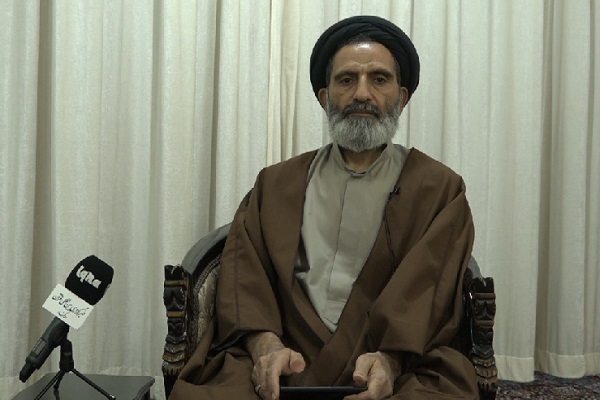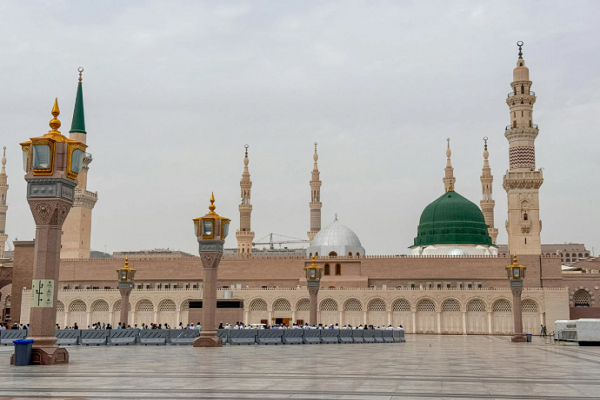Scholar Explains How Holy Prophet Created A United Ummah from A Tribal Society


This success was the result of a combination of moral, social and intellectual factors, Hojat-ol-Islam Seyed Ali Akbar Norui, a Jamiat al-Zahra (AS) University scholar told IQNA in an interview on the demise anniversary of the last messenger of God.
The Prophet’s (PBUH) gentleness, forgiveness, seeking forgiveness for others, consulting with people, great character, forgiveness in personal matters, good reputation before his mission, and rationality and prudence are among the most important factors in the formation of a unified Islamic nation, he noted.
“These led to people with different customs and traditions, and even tribal and ethnic differences, uniting around the Holy Prophet (PBUH).”
The cleric added that in verse 159 of Surah Al-Imran, God, the Almighty, reminds the Holy Prophet (PBUH) that the reason why people gathered and united around him was his gentle morals and spirit of tolerance and mercy.
“If the Prophet (PBUH) had been a harsh and hard-hearted person, people would have scattered around him.”
Hojat-ol-Islam Nouri added that three main factors were influential in winning hearts and creating unity through the behavior of the Holy Prophet (PBUH).
“First, forgiveness and pardon for the mistakes and lapses of the people, which won their love and trust. Second, seeking forgiveness for the people, i.e. asking God for forgiveness for them, which showed the Prophet's (PBUH) compassion and concern for the well-being of others. And third, consulting with the people on social issues gave them character and enabled participation in decision-making. These qualities, along with gentleness and kindness, provided a strong basis for social unity.
“In addition, the Prophet (PBUH) possessed unparalleled wisdom and resourcefulness, and with divine guidance, he was able to gradually remove the obstacles to unity among the scattered tribes, while the society at that time was full of long-standing tribal conflicts and enmities. Of course, this does not mean that there were no differences or disagreements among the Islamic community. However, Prophet Muhammad (PBUH) was able to create a cohesive community from a collection of scattered tribes, form a united army to conquer Mecca and defend the borders of Islam, and ultimately create a unified nation.”
IQNA asked the cleric if we were to take a modern look at the life of the Prophet (PBUH), what parts of his life could be an inspiration for the contemporary world?
He said the truth of man has not and will not be different today, in the past, and in the future. “Man is man, and his material and spiritual needs are no different yesterday, today, and tomorrow. We should not imagine that today, for example, a part of Islam can be a savior, but rather the whole of Islam must be implemented in human society yesterday, today, and tomorrow so that the pain of humanity can be cured.”
Read More:
He added, “If we want to answer precisely what can be inspiring, we must refer to verses of the Quran such as verses 10 and 11 of Surah As-Saff. These verses specify the way to cure human pain and say that humans must first accept God and believe in Him, then believe in the Messenger of God (PBUH), and then strive in the way of God with their lives and wealth.
“This path saves man from troubles, anxieties and worries and brings him to the shore of peace and provides for his material and spiritual needs. Therefore, the path to salvation for man is faith in God, faith in the Messenger of God (PBUH) and Jihad in the way of God.”

Asked about the message that can be extracted from the Prophet (PBUH) for the contemporary world, which is plagued by moral and social crises, Hojat-ol-Islam Nouri said if humanity wants to heal its pains, faith in God and belief in the mission of the prophets (PBUH) are necessary in this regard.
“Without believing in the fact that God cares for mankind and has determined a solution for him, no pain of man will be solved. The healing prescription for man’s pain, which is the same as the pains of the past and present of mankind, is stated in the Holy Quran.”
He cited Verse 64 of Surah Al-Imran: “(Muhammad), say to the People of the Book, ‘We must come to a common term. Let us worship no one except God, nor consider anything equal to Him, nor regard any of us as our Lord besides God.’ However, if they turn away from (the Truth), tell them, "Bear witness that we have submitted ourselves to the will of God.”
Read More:
The cleric added, “The message of the Holy Prophet (PBUH) for the contemporary world is that we should recognize God and His prophets in our lives, that no human being should be superior to another, that all humans should be equal and servants of God. That life should be just and proportionate to the ability and needs of each individual, and that social and economic problems should be solved with justice and wisdom.
“The implementation of these principles will save humanity from moral and social crises and lead to a bright and peaceful future for human societies. Ultimately, the full realization of this prescription requires the emergence of the true Savior (may God hasten his glad advent) and humanity’s readiness to accept Him.”
4300568



